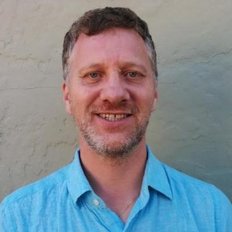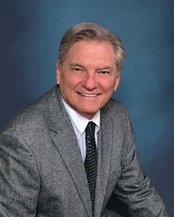M.L. von Franz Seminars:
PATTERNING AND THE PSYCHE IN THE NATURAL WORLD
Patterning and the Psyche in the Natural World
Life and the choices we make are not only governed by our personal and subjective choices, proclivities and preferences, but also by many unconscious factors. As we take a clinical look at the formation of patterns in life, we begin to see a high degree of order and patterning, clustering around a series of universal themes. These include the processes and the initiatory dynamics of childhood, adolescence, adulthood, midlife and the winter stages of old age. Each stage is replete with its own unique rites of passage, behaviors, and images and of special importance for this conference, is the presence of universal, inborn archetypal tendencies and patterns. Through the presentation of clinical vignettes, fairytales, literature and recent discoveries in Quantum Physics and the Neurobiology of Patterns, we will focus on:
1. The formation and stabilization of patterns,
2. Their reiterative nature,
3. The recalcitrant nature of patterns,
4. Approaches for changing of those non-generative patterns within an individual’s life.
The program will also discuss the teleological nature of patterns, and offer clinicians the opportunity to shift the prevailing therapeutic paradigm from one focusing on pathology to one concerned more with the nature of expression, to facilitate a deeper understanding of these often disturbing, complex, and mysterious patterns emerging in our clients’ lives.
Topics to be discussed include:
1. The meaning of patterns from an evolutionary, psychological neurobiological, and archetypal perspective.
2. The relationship between archetype and pattern.
3. Helping clinicians to recognize the presence and meaning of archetypal patterns in individual and collective behavior.
4. Helping clinicians to recognize the relationship between pattern and behavior, and the unique images synonymous with specific universal patterns.
5. Introduce clinicians to the neurobiology of patterns.
6. Assist clinicians in understand the neurobiological reasons for the seeming calcification of patterns, and in clients’ difficulty in changing damaging life patterns.
7. Learning to clinically assess and determine a client’s ability to both work with and change deeply rooted patterns, as well as understanding what factors strengthen the role of such patterns in a client’s life.
Learning Objectives:
To enable clinicians to:
1. Develop an awareness of the autonomous nature of psychological patterns.
2. Enhance a clinician’s understanding of the personal psychodynamics, universal and evolutionary role of patterns in our client’s life.
3. Recognize and understand the genesis and function of generative and non-generative patterns as illustrated in literature, film, and clinical work.
4. Help clinicians understand the archetypal and universal meaning of the patterns in their client’s life so as to enable them to make meaningful transitions. This seminar will emphasize the archetypal transitions inherent in the following life stages: adolescence, career, parenting, marriage, mid-life and the winter years of life.
4. Assist clinicians to assess their clients’ ego strength relative to the patterns which “have them.”
5. Help clinicians appreciate the all-consuming and possessive nature of patterns and the relationship between patterns and the various addictive disorders.
6. Help clinicians recognize the recursive patterns emerging within the client-therapist relationship, and often manifested in frame related concerns and deviations.
This program is designed for clinicians and is offered at an advanced level. It is also open to professionals from other disciplines.
1. The formation and stabilization of patterns,
2. Their reiterative nature,
3. The recalcitrant nature of patterns,
4. Approaches for changing of those non-generative patterns within an individual’s life.
The program will also discuss the teleological nature of patterns, and offer clinicians the opportunity to shift the prevailing therapeutic paradigm from one focusing on pathology to one concerned more with the nature of expression, to facilitate a deeper understanding of these often disturbing, complex, and mysterious patterns emerging in our clients’ lives.
Topics to be discussed include:
1. The meaning of patterns from an evolutionary, psychological neurobiological, and archetypal perspective.
2. The relationship between archetype and pattern.
3. Helping clinicians to recognize the presence and meaning of archetypal patterns in individual and collective behavior.
4. Helping clinicians to recognize the relationship between pattern and behavior, and the unique images synonymous with specific universal patterns.
5. Introduce clinicians to the neurobiology of patterns.
6. Assist clinicians in understand the neurobiological reasons for the seeming calcification of patterns, and in clients’ difficulty in changing damaging life patterns.
7. Learning to clinically assess and determine a client’s ability to both work with and change deeply rooted patterns, as well as understanding what factors strengthen the role of such patterns in a client’s life.
Learning Objectives:
To enable clinicians to:
1. Develop an awareness of the autonomous nature of psychological patterns.
2. Enhance a clinician’s understanding of the personal psychodynamics, universal and evolutionary role of patterns in our client’s life.
3. Recognize and understand the genesis and function of generative and non-generative patterns as illustrated in literature, film, and clinical work.
4. Help clinicians understand the archetypal and universal meaning of the patterns in their client’s life so as to enable them to make meaningful transitions. This seminar will emphasize the archetypal transitions inherent in the following life stages: adolescence, career, parenting, marriage, mid-life and the winter years of life.
4. Assist clinicians to assess their clients’ ego strength relative to the patterns which “have them.”
5. Help clinicians appreciate the all-consuming and possessive nature of patterns and the relationship between patterns and the various addictive disorders.
6. Help clinicians recognize the recursive patterns emerging within the client-therapist relationship, and often manifested in frame related concerns and deviations.
This program is designed for clinicians and is offered at an advanced level. It is also open to professionals from other disciplines.
Conference Schedule
Your browser does not support viewing this document. Click here to download the document.
|
Downloadable Conference Schedule
Conference Registrations & DiscountsConference Tuition $325 for the entire conference, April 19th - 22nd, 2017
$125 for each individual day $75 for half day Tuition Discount (one per registrant, please): Please note discounts apply to pre-registration only! Tuition Discount (one per registrant, please): ___________ 5% Member, Depth Psychology Alliance ___________ 10% Senior (65 and over) ___________ 20% Member, any Florida Jung Group ___________ 20% Fort Lauderdale Resident ___________ 25% Assisi Program Graduate or Current Student (all programs) Cancellations and Refunds:
A full refund minus a $50 administrative fee, is given, if cancellation is made prior to two weeks (by 4/5/18) before the beginning of the conference. | ||||||
Hotels & LodgingTrip Advisor Link to best hotels in the area
https://www.tripadvisor.com/Hotels-g34381-Lauderdale_by_the_Sea_Broward_County_Florida-Hotels.html |
AIRPORTAIRPORT:
Fort Lauderdale Airport 100 Terminal Dr, Fort Lauderdale, FL 33315 The Fort Lauderdale Airport is just 16 miles from The Corniche, the conference venue. It's about a 25 minute car ride. Conference Registration - General |
Conference Registration - Students
Your browser does not support viewing this document. Click here to download the document.
Downloadable Student Registration
|
Your browser does not support viewing this document. Click here to download the document.
Downloadable General Registration
| ||||||||||||






